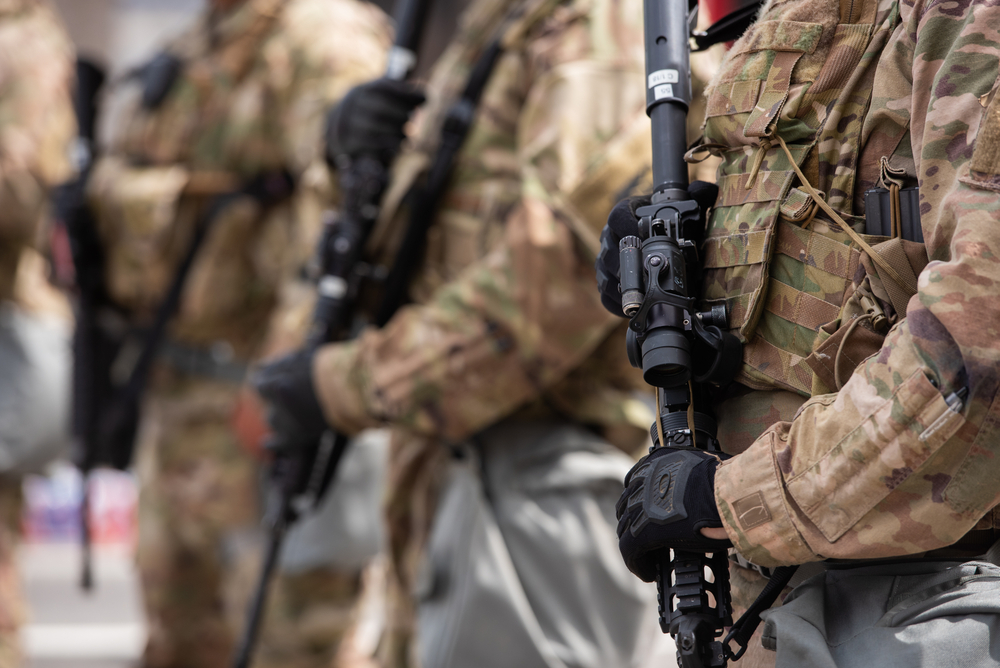Your cart is currently empty!
Ukrainian Soldier Who Survived Being Tortured and ‘Buried Alive’ Details How He Escaped

What does it take for a human being to cling to life when every possible chance of survival has been stripped away? History remembers stories of soldiers who endured the unimaginable accounts that blur the line between survival instinct and sheer willpower. Vladyslav, a 33-year-old Ukrainian National Guardsman, has now added his name to that brutal ledger.
Captured on the eastern front and subjected to torture so cruel it recalls the darkest chapters of war, he was slashed across the throat, tossed into a pit with his dead comrades, and buried under garbage to conceal the crime. Yet, against every medical and statistical probability, he clawed his way back from what should have been certain death. His crawl to safety, spread across five days of agony and determination, is not just a personal story but a chilling glimpse into the atrocities of this war and a testament to resilience under the most inhuman conditions.
The Ordeal of Capture and Torture
Vladyslav’s capture unfolded in early August, when his unit near Pokrovsk an eastern city battered by some of the war’s heaviest fighting was overrun. He was taken by Russian forces alongside other Ukrainian soldiers and led into a basement where the nightmare began. There, prisoners were not only beaten but also forced to witness the torture of others, unable to turn away from the deliberate spectacle of cruelty.
His family later described the mutilations inflicted on the men: eyes gouged out, lips and ears cut away, and even castration. Vladyslav himself was singled out for abuse. His captors cut off part of his ear, yanked a tooth from his mouth with pliers, and eventually slashed his throat. Believing they had finished him, Russian soldiers discarded him in a pit with seven dead comrades. Garbage was heaped over the bodies, intended to erase the evidence of their killings.
What the soldiers thought was his grave became his chance at survival. Buried among the debris, Vladyslav realized he was still alive, his hands bound but his will intact. Amid the trash was a broken bottle. It became his lifeline, the jagged glass allowing him to cut through the ropes and begin what would become a five-day crawl back toward life.
A Narrow Escape from Death

With his throat cut and his body weakening from blood loss, Vladyslav’s survival hinged on fragile chance. The pit intended to serve as his grave became the very place that offered him an escape. Buried beneath layers of waste, his wounds concealed by the garbage, he was overlooked by his captors. The broken bottle within reach turned into a crude but vital tool sharp enough to slice through the ropes binding his wrists.
Freeing himself was only the first step. He pressed cloth against his neck to slow the bleeding, knowing that each movement drained what little strength remained. Crawling out from under the bodies of his fallen comrades, he faced the near-impossible task of navigating hostile terrain while clinging to life. Every inch forward was a contest against dizziness, infection, and the ever-present risk of being discovered.
For five days, Vladyslav dragged himself toward Ukrainian-controlled positions. He could not walk, could not call for help, and could not rely on anything but his determination and the faint hope that someone would find him before it was too late. His ordeal blurred the line between survival instinct and defiance, carrying him across the threshold of death and back again.
Five Days of Survival Against the Odds

Every hour that Vladyslav crawled across no-man’s-land pushed his body further into collapse. His neck wound bled continuously, his skin began to rot from infection, and his strength ebbed with each movement. He survived on instinct alone, clinging to life with no food, no water, and no voice to call out for help.
Paramedics who later treated him said his survival defied medicine. Artem, a first responder with the MOAS-Ukraine Foundation, recalled receiving the call about a soldier with a cut throat who had been in captivity. “I’ll remember this case for the rest of my life,” he said, describing the moment they found him near death.
On August 17, nearly five days after he was left for dead, Vladyslav reached Ukrainian-controlled territory. When medics rushed him to a military hospital in the Dnipropetrovsk region, his condition was critical. He had lost so much blood that his doctor later explained that if the slash to his neck had been only half a centimeter deeper, he would have died within minutes. That he lasted days instead is seen as nothing short of extraordinary.
Medical Rescue and Road to Recovery

When Vladyslav was admitted to the hospital in the Dnipropetrovsk region, doctors were confronted with one of the most severe cases they had seen in over a decade of treating war injuries. His neck wound had already begun to rot, the result of days of bleeding and exposure. The fact that he was still alive baffled even seasoned surgeons. As the hospital’s director, Serhii, noted, “If the cut had been half a centimeter deeper, his life would have ended in a minute or two.”
Surgeons worked to stabilize him and began reconstructive procedures to repair his damaged throat. Their immediate focus was to save his ability to breathe and prevent further infection. In time, they hope to restore his voice. “The goal is to make the surgical results so precise that even the stitches are invisible,” one of his doctors explained, underscoring their determination to help him speak and live normally again.
Vladyslav now communicates with his family and medical staff through writing, clutching a notepad to share fragments of his experience. His wife, Viktoriia, and brother, Yevhen, have become his voice to the outside world, translating his scribbled words into testimony. To them, his survival is not just a personal miracle but a symbol of endurance that reflects the suffering and unyielding spirit of countless others caught in the war.
From Survivor to Soldier Again

Despite enduring torture, mutilation, and five days of crawling with a slit throat, Vladyslav is already looking beyond his recovery. His family says he dreams of rejoining his comrades at the front once his strength and voice return. For him, the ordeal has only sharpened his resolve. In notes shared through his wife and brother, he described his captors as “creatures” and expressed a burning desire that they should one day feel what he and his fellow soldiers endured.
This determination is balanced by his role as a father. At home, a four-year-old daughter awaits him, and his family admits that her future is never far from his thoughts. The hospital staff, who have worked tirelessly to keep him alive, see his survival as not just a medical success but a deeply human one, an emblem of the resilience that keeps Ukrainians fighting on despite overwhelming odds.
Vladyslav’s story resonates far beyond his own survival. It embodies both the brutality of this war and the extraordinary willpower that refuses to be broken. For those following Ukraine’s struggle, his ordeal is not only a testament to individual courage but also a reminder of the stakes faced daily by soldiers and civilians alike.
The Human Cost We Cannot Ignore
Vladyslav’s survival is both a miracle of human endurance and a chilling testament to the cruelty of war. His story forces us to confront the reality that atrocities are not abstractions they are lived, suffered, and carried by real people with families, futures, and unshakable determination.
As Ukraine continues to fight for its sovereignty, accounts like his are more than personal narratives; they are evidence. They reveal the stakes of this conflict in unflinching detail, underscoring why the world cannot look away. Yet beyond the politics and the brutality lies something else: the defiant resilience of an individual who, against every conceivable odd, crawled back from the edge of death.
For his daughter, for his comrades, and for his country, Vladyslav’s fight is not finished. And neither should be the global commitment to bearing witness.
